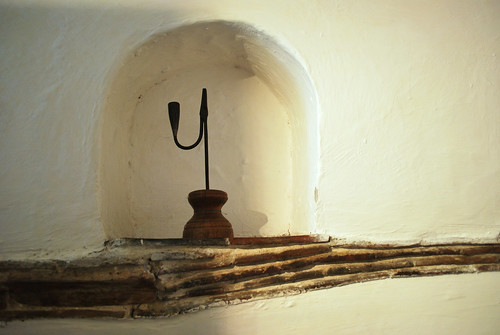
{Photo by rocketlass.}
When I begin reading a novel, I always flip to the back to see how long it is, and as I read I'm always conscious of that looming final page: I'm a third of the way through; I'm halfway through; I'm nearly there. The knowledge of the distance to the end helps me keep my attention on the structure of the novel, on where its dramatic points and narrative shifts come, on what might still be possible.
I'm not doing that right now. I'm deep into the first of five utterly distinct sections of an advance reader's copy of Roberto Bolano's forthcoming 2666, which I'll be reviewing for the Seminary Co-op's new blog . . . and while I know how long the whole novel is, I have no idea where this section ends. Instead, I'm just along for the ride, willing to let Bolano take me where he will, for as long as he chooses. It's not just that I don't know: I don't even want to know. I'd rather dread.
I remember this feeling from reading The Savage Detectives: Bolano's narrative technique is strangely unmooring, propulsive yet at the same time somehow still seeming quotidian--the days and the anecdotes and half-anecdotes go by with little to suggest a pattern or a plan . . . yet dread builds, worry accumulates, my readerly desire to know what will happen fills the back of my mind, pacing and pacing and pacing as my more immediate, focused attention turns page after page after page.
If I can figure out how Bolano achieves that effect, I'll feel very smart indeed. And if 2666 sustains the force of its first 150 pages . . . well, I don't even quite know what to say.

{Photo of Roberto Bolano by Flickr user vonbergen.net, used under a Creative Commons license.}
My envy knows no bounds.
ReplyDelete